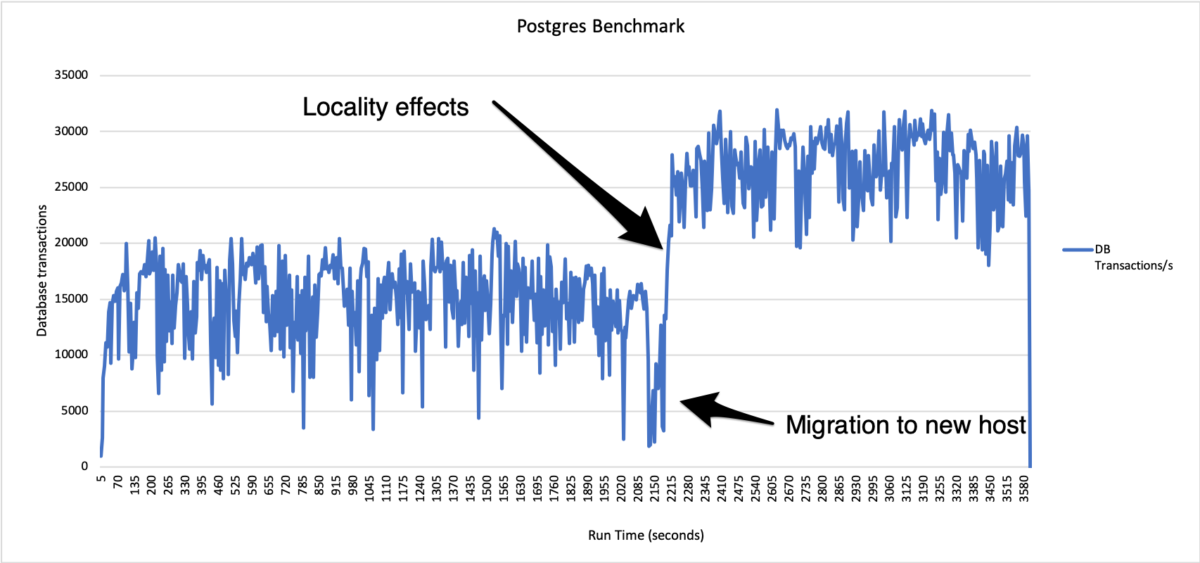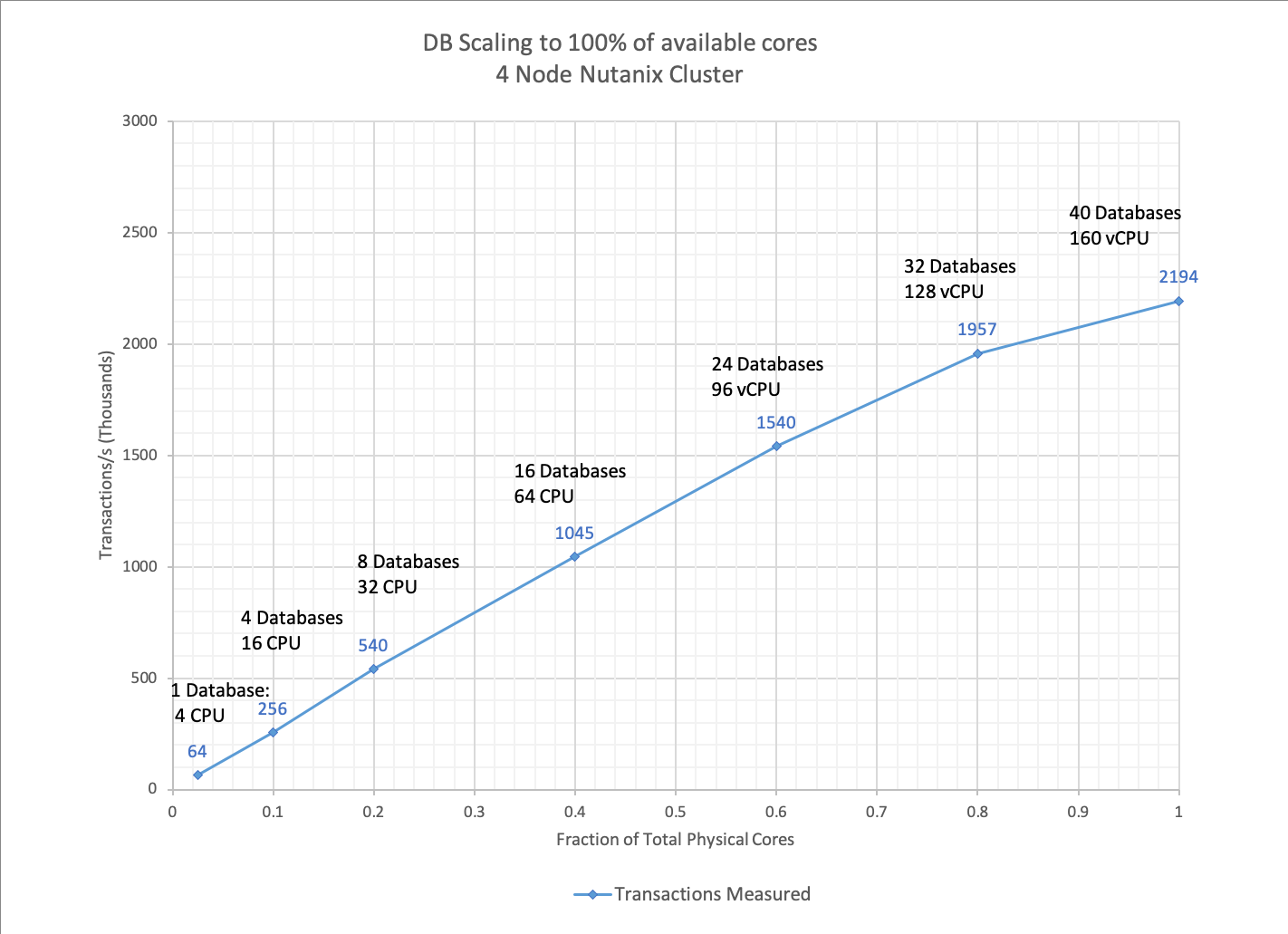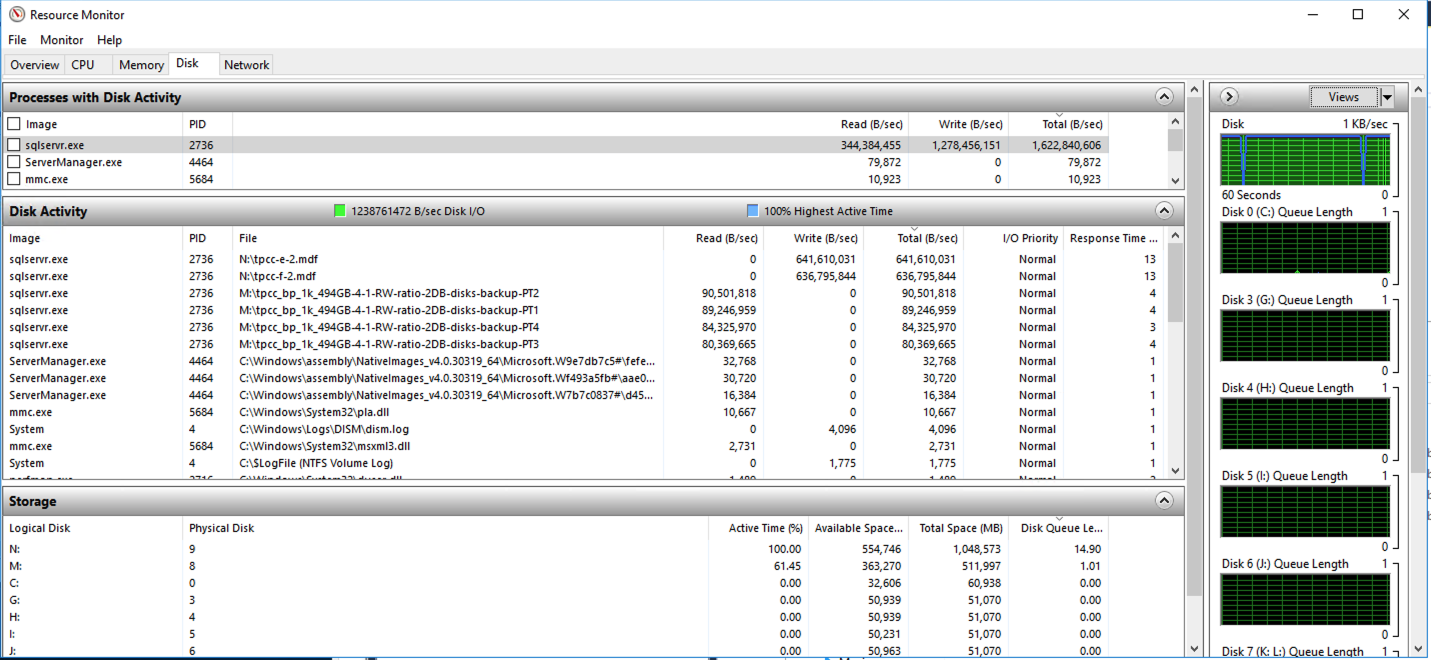Do database workloads benefit from data locality?

In this video I migrate a Postgres DB running PGbench benchmark. The DB is running on a Host which is CPU constrained. Once the VM is migrated to a less busy host the transaction rate immediately increases from ~15,000 to ~20,000. As the DB continues to run on the new host – the Nutanix storage detects the access patterns and “localizes” the data that the DB is accessing. Over the subsequent minutes the transaction rate increases to ~30,000 TPS.
The variation in the transaction rate is due to the benchmark itself, the transaction rate is not expected to be uniform. Many different queries are executing in parallel, some hitting RAM cache, some hitting storage.
N.B The Postgres DB is totally un-tuned and contains purely default settings. The aim of the experiment was to see how data-locality might affect a running database workload, not to generate the maximum TPS.



